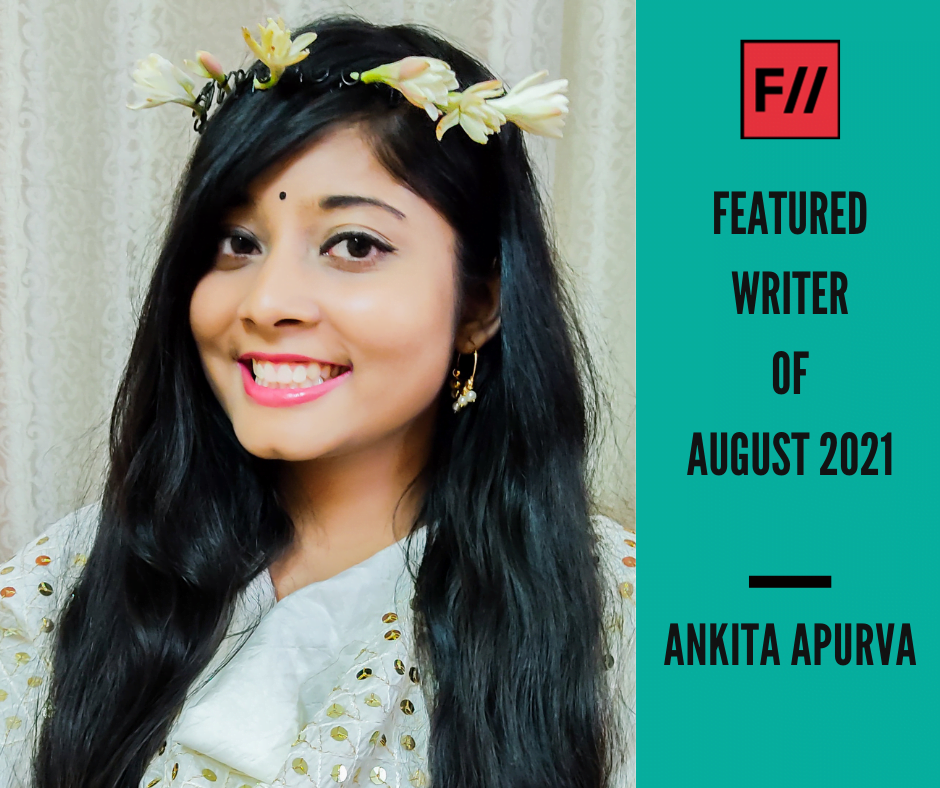We have been featuring the best writers from our writers’ community for their committed contribution to FII, making it what it is today. FII would not exist if not for the passionate and loyal feminist writers’ community that we have steadily been building over the last three years. For August 2021, we feature Ankita Apurva.
Defining herself as ‘born with a pen and sickle’, Ankita Apurva is a Bahujan anti-caste oppression activist and feminist writer based in Jharkhand. For Feminism In India, Ankita has written extensively and lucidly on caste, culture, cinema and literature. Some of her popular articles are Decoding Subarnarekha On Ritwik Ghatak’s Death Anniversary, Casteist Instagram: ‘Influencers’ Create Content Deriding Domestic Workers, Cleanliness Is Political: How Caste Dictates Discriminatory Notions Of Pure And Impure, among others.
FII: Tell us a little about yourself and what you do.
Ankita Apurva: I was born with a pen and a sickle.
FII: How did you become a part of the FII writer family?
Ankita Apurva: My first article on FII was on decoding Ritwik Ghatak’s movie Subarnarekha with respect to its portrayal of casteism and patriarchy. Since then, I have written on myriad revolutionaries of the anti-caste movement, seminal poets who took a stand against fundamentalist forces, feminist and anti-caste reviews of works of art and culture, and, historical and contemporary issues.
FII: How and when did you become a feminist? Which issues within feminism are close to your heart?
Ankita Apurva: As a Bahujan woman from an extremely marginalized state, every moment of my life has been impacted by the coordinates of my identity. Furthermore, patriarchy within the community hounds us as well. For me to resist and to exist, is itself an act of feminism. Black feminists have hitherto questioned white women on the erasure of racism. In the Indian context too, be it “influencers” or self-proclaimed “progressive” poets from the oppressor castes; every portal and stage speaking on feminism has been dominated by upper-caste women who have constantly denied how they themselves oppress SC, ST, and OBC women.
FII: What is your favourite piece on this site that you have written, and your favourite piece on this site that you have read? Why did they strike you?
Ankita Apurva: My favorite piece that I have written is on the “Influencer culture” which has been making derisive videos about marginalized women who work as domestic workers — these videos are infantilizing and mock Jharkhandi languages. It becomes imperative for the ‘influencers’ to correct this demeaning behavior.
My favorite piece that I have read here is Analysing The Caste Bias In Private Sector Employment. Oppressor-castes portray the private sector as a place bereft of discrimination, even though at every stage SCs, STs, and OBCs face discrimination — be it being rejected on grounds of their surnames, be it being hounded for their surnames after being selected, or dealing with the caste-pride of upper-caste colleagues, or be it being overburdened and overcriticized while working, or being denied fair pay and promotions.
FII: What do you like to do when not writing about gender and social justice?
Ankita Apurva: I read and farm. A day spent doing these two activities is the most enriching and fulfilling.
FII: What do you like about FII and our work? What more would you like to see from us?
Ankita Apurva: FII attempts to be a space to bring in every factor which affects and relates to feminism. I would like to see more representation of SC, ST, and OBC women in the team.
FII thanks Ankita for her timely and valuable contributions. We are incredibly grateful to have her as a part of our writers’ community and appreciate her for her deeply informative writing. Check out her articles here. She can be found Instagram and Twitter.
About the author(s)
Feminism In India is an award-winning digital intersectional feminist media organisation to learn, educate and develop a feminist sensibility and unravel the F-word among the youth in India.




